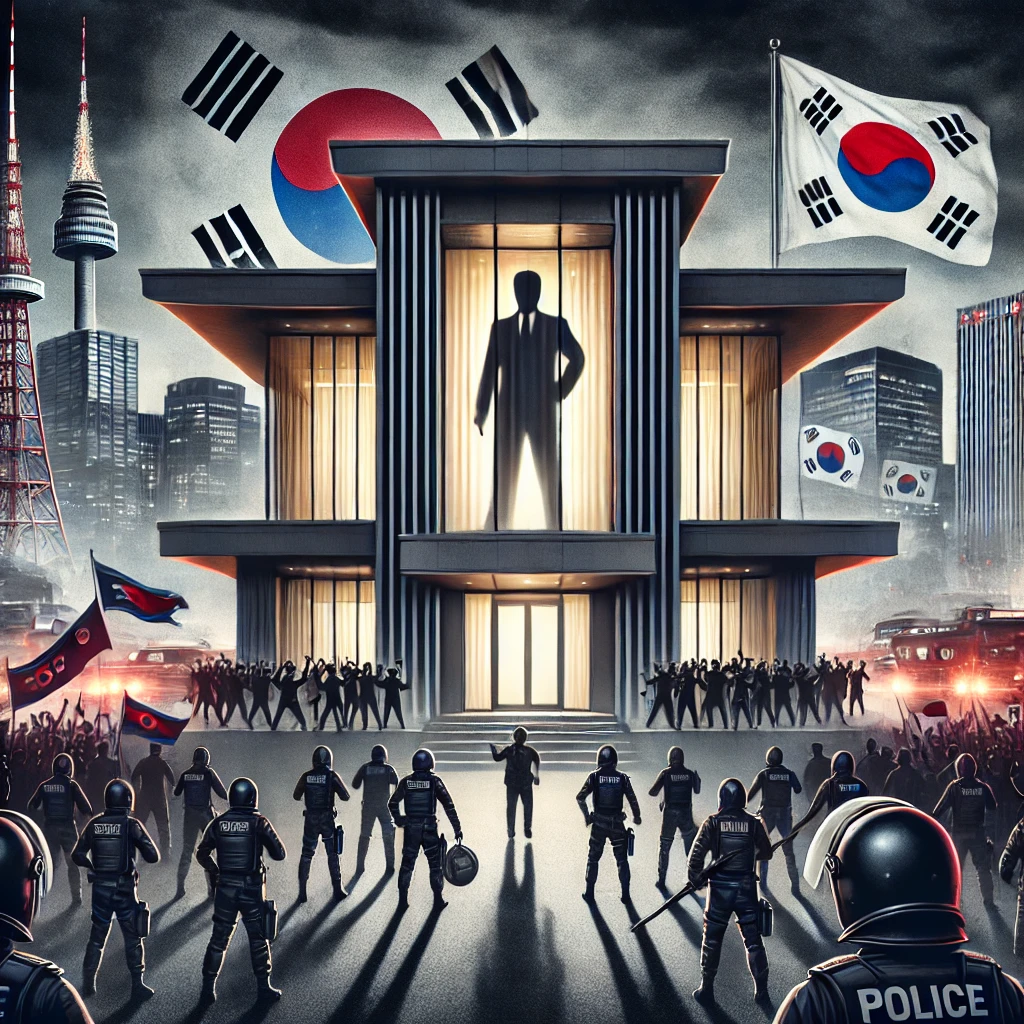South Korea Faces Unprecedented Political Crisis Amid Presidential Standoff
South Korea is grappling with one of its most intense political crises in recent history, centered around President Yoon Suk Yeol’s impeachment. The situation escalated dramatically as Yoon remains confined within the presidential residence, defying detention orders and fueling nationwide debates on the balance of power and the role of democracy.

The Root of the Crisis
President Yoon Suk Yeol’s impeachment on December 14, 2024, followed his controversial declaration of martial law earlier that month. Yoon justified his actions as a necessary measure to counter the dominance of the opposition and maintain stability. However, critics argue that it was a blatant overreach of executive authority, further polarizing a politically divided nation.
The impeachment was swiftly followed by attempts to detain Yoon on charges of rebellion and abuse of power. However, his resistance to leave the presidential residence has turned a legal matter into a political spectacle, with law enforcement and supporters locked in a tense standoff.
A Nation Divided
Yoon’s supporters, many of whom are young conservative men, have gathered en masse outside the presidential compound. They view him as a defender of South Korea’s sovereignty and a bulwark against political overreach by the opposition. The rallies have grown larger, with demonstrators vowing to shield him from detention.
Conversely, critics see Yoon’s actions as undermining the principles of democracy. The opposition and various civil society groups demand swift legal action, arguing that Yoon’s defiance of detention warrants sets a dangerous precedent for governance in South Korea.
The Failed Detention Effort
On January 3, 2025, investigators attempted to execute a court-issued warrant to detain Yoon on allegations tied to his martial law declaration. Backed by a sizable police presence, authorities were met with resistance from Yoon’s security team, resulting in a six-hour standoff. Despite the effort, Yoon remains inside the presidential residence, deepening the crisis.
Political and Legal Implications
The Constitutional Court now faces the crucial task of deciding whether to remove or reinstate Yoon as president. The court has up to 180 days from the impeachment to issue a verdict. Until then, Deputy Prime Minister Choi Sang-mok serves as acting president, ensuring basic government operations continue amidst the chaos.
Experts warn that the prolonged standoff could weaken South Korea’s democratic institutions and erode public trust in its political system. The situation has also sparked concerns about potential long-term implications for governance and stability, both domestically and on the international stage.
The Bigger Picture
This crisis has thrown a spotlight on the fragility of South Korea’s political landscape. The nation, which has prided itself on its transition from dictatorship to democracy, now finds itself at a crossroads. The ongoing standoff underscores the challenges of navigating political polarization and upholding the rule of law in a rapidly evolving democracy.
International observers have drawn parallels between South Korea’s crisis and similar political upheavals in other democracies. As the world watches, the outcome of this standoff could set a significant precedent for how nations address power struggles at the highest levels of government.
Conclusion
South Korea’s political crisis is far from over. With President Yoon Suk Yeol refusing to yield and his supporters rallying in his defense, the nation remains on edge. The coming months will be crucial in determining not only Yoon’s fate but also the future trajectory of South Korea’s democracy.
This unprecedented standoff serves as a reminder of the delicate balance between authority, accountability, and the enduring power of public opinion in shaping a nation’s destiny.


